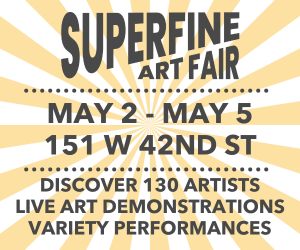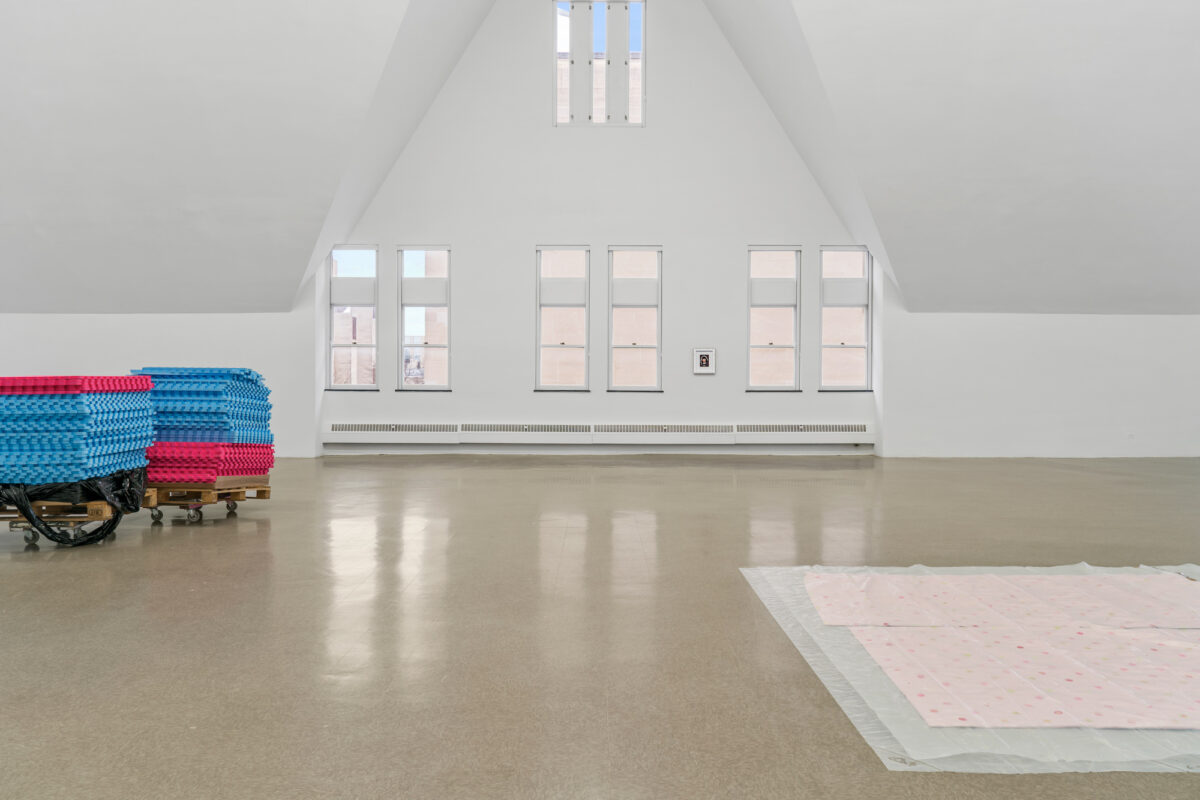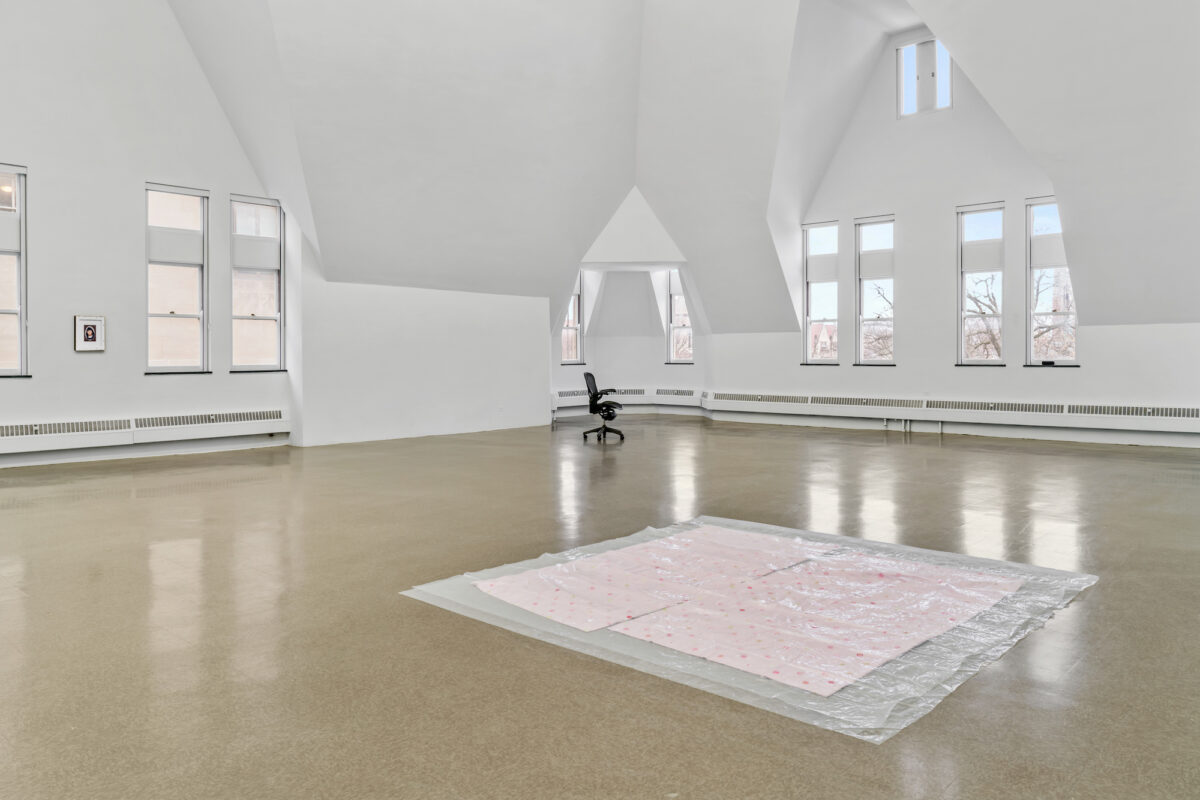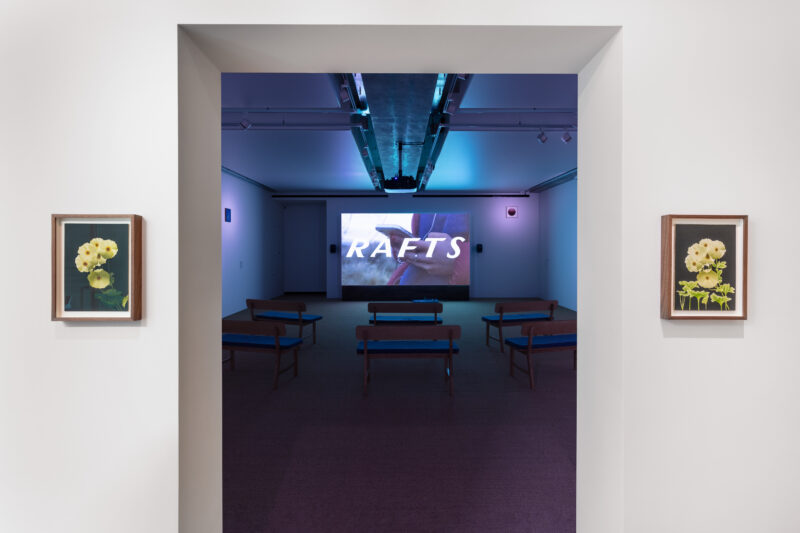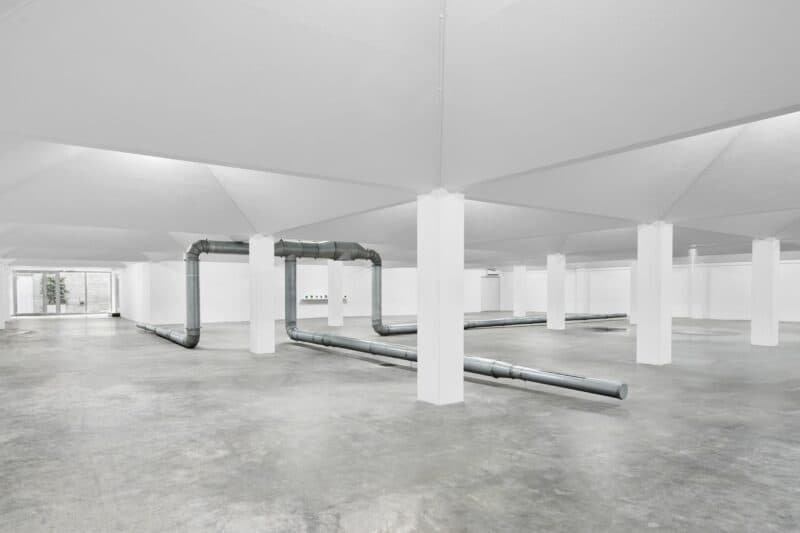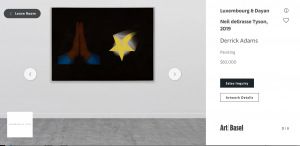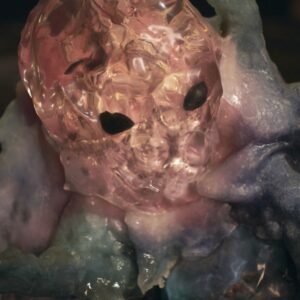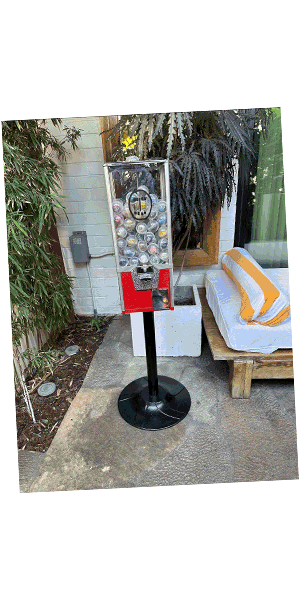Composed from a minimal range of surplus materials, Ghislaine Leung’s exhibition Holdings lovingly rescores the ‘infrastructures of dependency’ that animate identity.
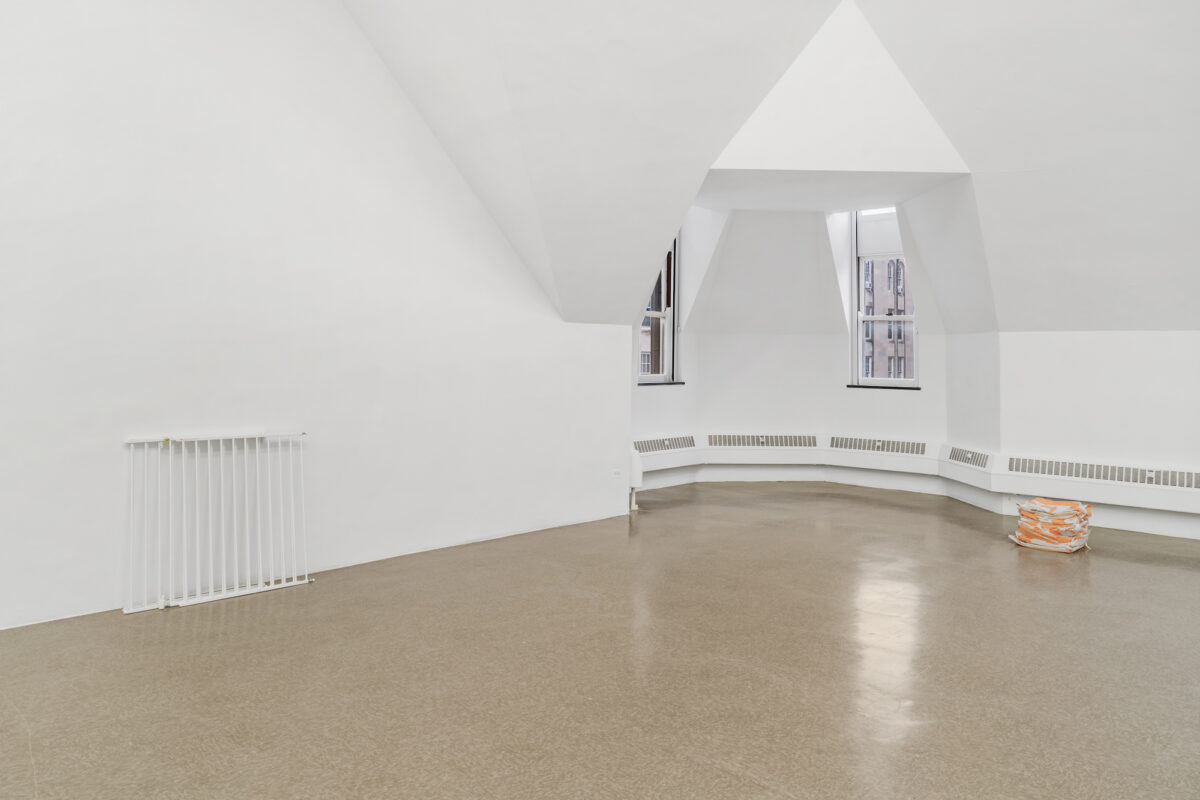
Becoming objects dot the space, their bodies barely posed yet willed to life by a wistful whistle. The soft sound of Wants (2024) suffuses Ghislaine Leung’s (b. 1980) exhibition Holdings, at the Renaissance Society, Chicago, until April 14th. A song abstracted from the 1964 musical My Fair Lady, this audio loops, filling the high-vaulted hall with an elegiac sound, the twill of piano keys and Audrey Hepburn’s lyrical caress: “All I want is a room somewhere / Far away from the cold night air / With one enormous chair / Oh, wouldn’t it be loverly?”. And then this kitschy loop ends. Everything shivers, refrained not cold, lying in a state of incompleteness, vulnerable to love — the humanly conditions of trust and reciprocity, the conditions of care and dependency — the unconditional force holding a self to a nother, to think with Gillian Rose’s philosophical use of the term (see Love’s Work: A Reckoning With Life, 1995).
Beyond the minimal constellation of cute objects which physically constitute the exhibition, Holdings builds on Leung’s ongoing critique of fiscally focused systems of value and labour. Specifically, the ways these systems deregulate humanly life, rendering individuals as autonomous agents — things to be classified, optimised or at worst disposed of. A trace of this critical thinking can be seen in Leung’s 2023 publication BOSSES, and spatially in her exhibition Balances, held at Maxwell Graham, New York (September 8th – October 15th, 2022). In Balances, Leung reflected upon the assumed societal models that define her identity in terms of measurable labour, rendering her as a siloed Artist — a monological maker of fiscally valid stuff — precluding her identities as a mother and emotive being. Working from this ideological bind, the artworks included in that exhibition reworked the physical objects installed by Leung to manage the ‘proper’ division of her life: child gates, a baby monitor, a monumental wall calendar now inversely performing their restraining role.
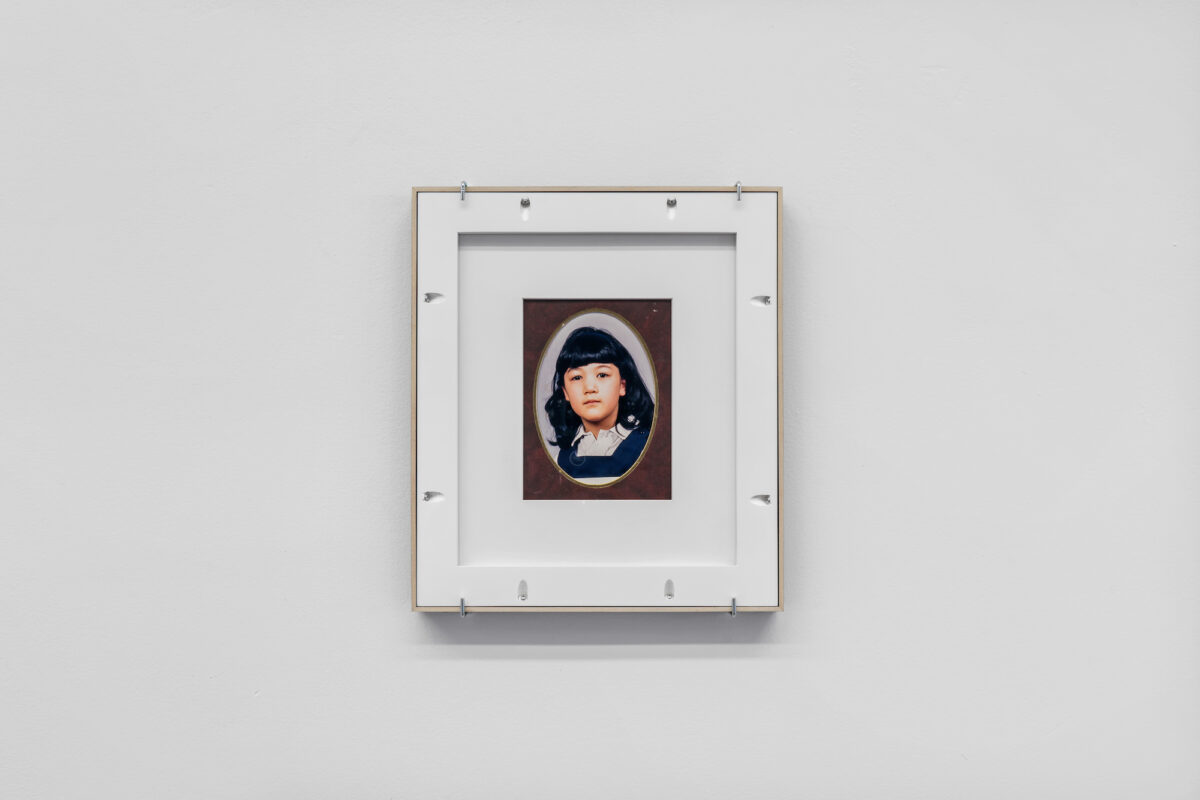
Composed from a framed photograph of a school-age Leung (GLX, 2024) and three new ‘scores’, Holdings renegotiates materially defined notions of identity through a well-thought pairing of formal and theoretical actions. As a structuralist medium, Leung defines her scores as concise written descriptions ‘which outline the implementation and material of a work, which an institution then interprets and performs in conversation with the artist’. (As an example, the score for Wants reads: ‘A song from a film the artist’s father watched repeatedly before moving to the United Kingdom [from Hong Kong] in 1970’.) Unlike the exacting nature of instruction-based artworks, such as those created by ‘70s conceptualists or by the artists associated with Fluxus, Leung sees her scores as being synonymous with musical compositions, allowing for a generosity in their interpretation and performance. Further, in a formal sense, rather than an idea or concept leading to the production of a preconceived artwork, as with instruction-based artists like Sol LeWitt, Leung, like a composer sitting at a piano thinking about how a performance can come to be, works with the conditions around her — the resources at hand or not, a context, surround, as well as any limiting factors — making these co-constitutive details into a generative part of the artwork’s becoming. This process of recognition refrains subject positions — Artist / Institution, Artwork / Performer — demonstrating how a thing’s being — how a thing comes to exist with a validity and realness — is composed with and through an ‘infrastructure of dependency’, to quote from Leung’s 2023 publication.
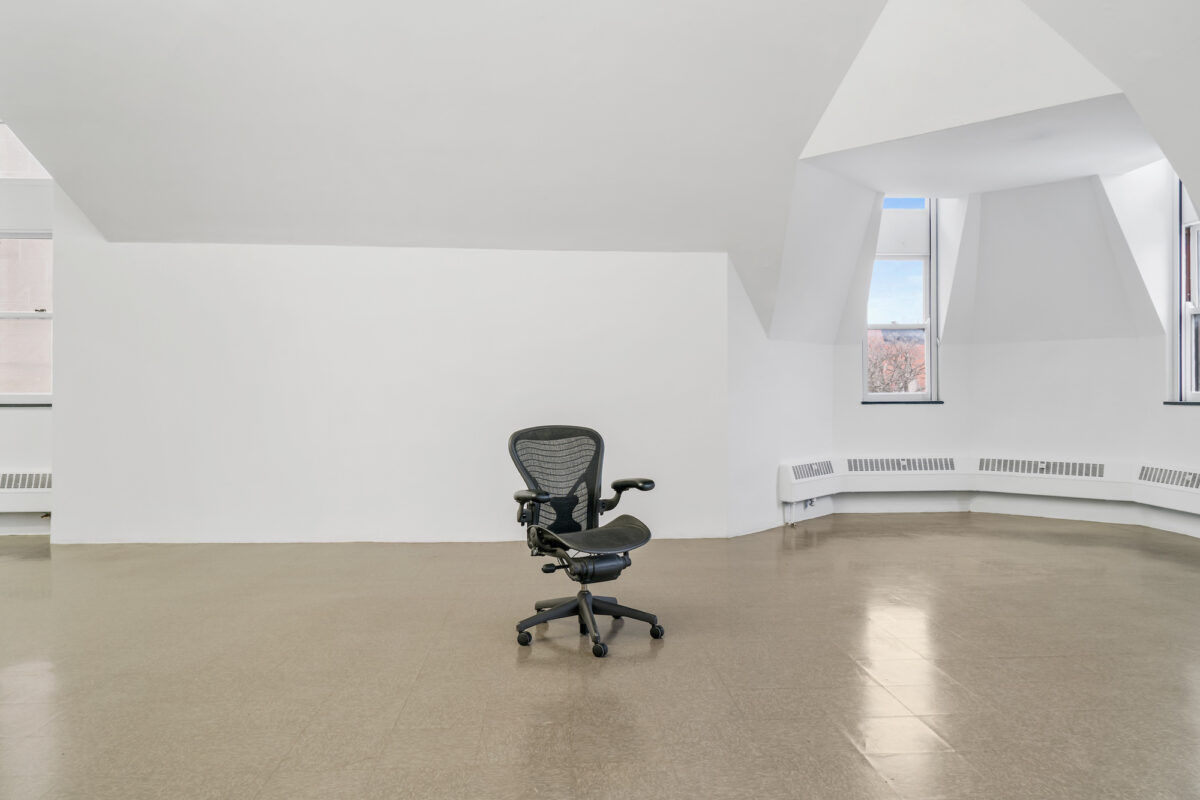
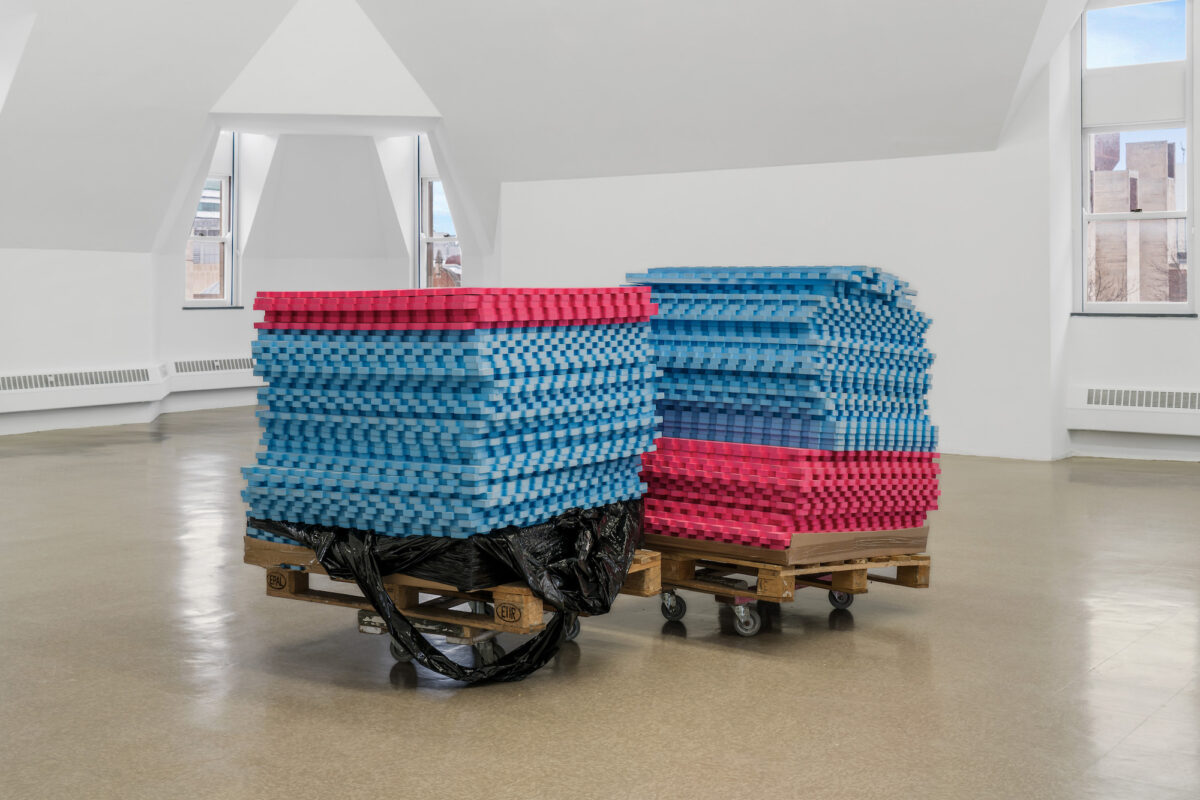
Within this exhibition, the score Holdings (2024), which reads ‘An object that is no longer an artwork’, makes these structures of dependency newly plastic and pentalogically malleable. (1) Holdings, a well-postured office chair, an ex-art object used by Trisha Donnelly in her 2008 exhibition at the Renaissance Society; (2) Holdings, two precarious stacks of pink and blue foam matting, teetering on dainty casters, an ex from Leung’s own exhibition 0465773005 at Cabinet, London (2021); (3) Holdings, a papery mound of peach-orange and ‘50s-white-cream striped cotton, once the fabric for Intersecting Axes: A Work in Situ, Daniel Buren (1983); (4) Holdings, white child gates, lazily resting against a wall, once Gates (2019), (5) Holdings, bright pink and lime-green bon-bon print black-out curtains preserved between sheets of polythene packaging, once Blackouts (2021), respectfully Leung’s. As just jested to, here the score Holdings is performed five times simultaneously, with each manifestation finding a different physical form in the remains of another artwork, be these historical or Leung’s own. Removed from their original system of value, these material-actors lie latent in the exhibition space, as if nostalgically dreaming, their un-made ambiguity accentuated by Hepburn’s wistful voice.
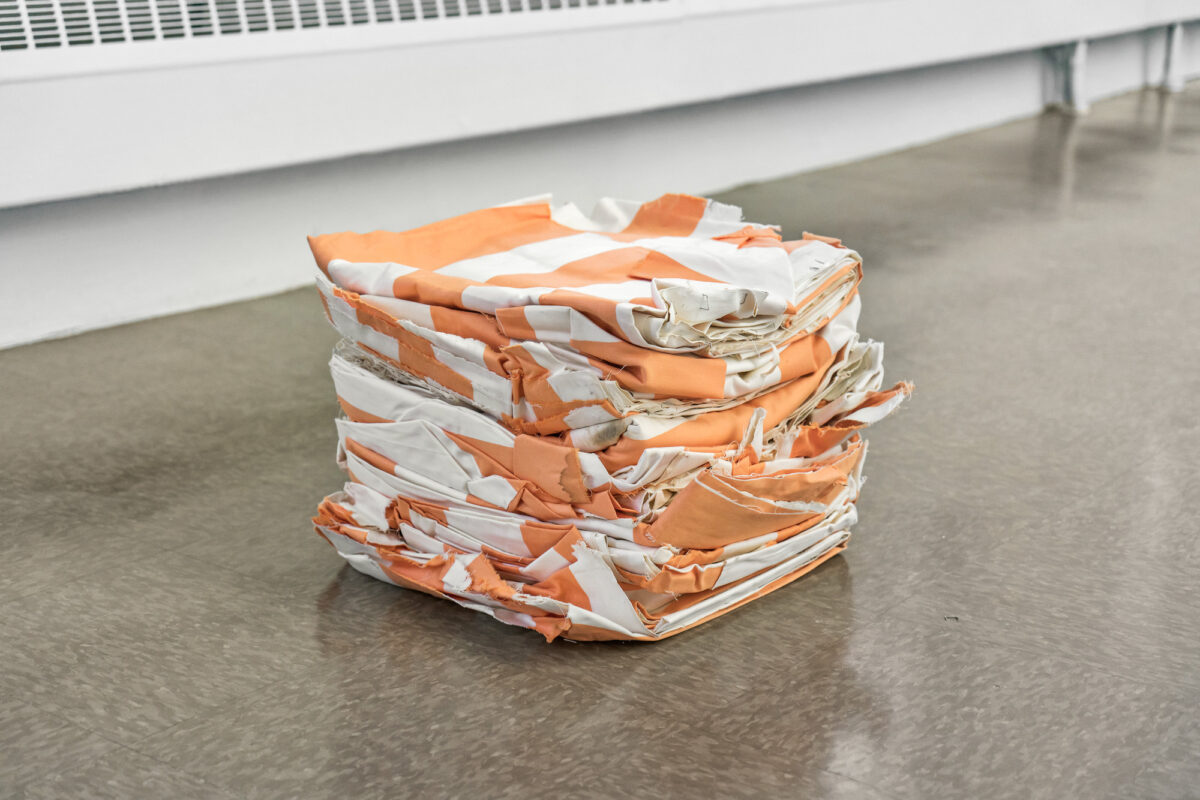
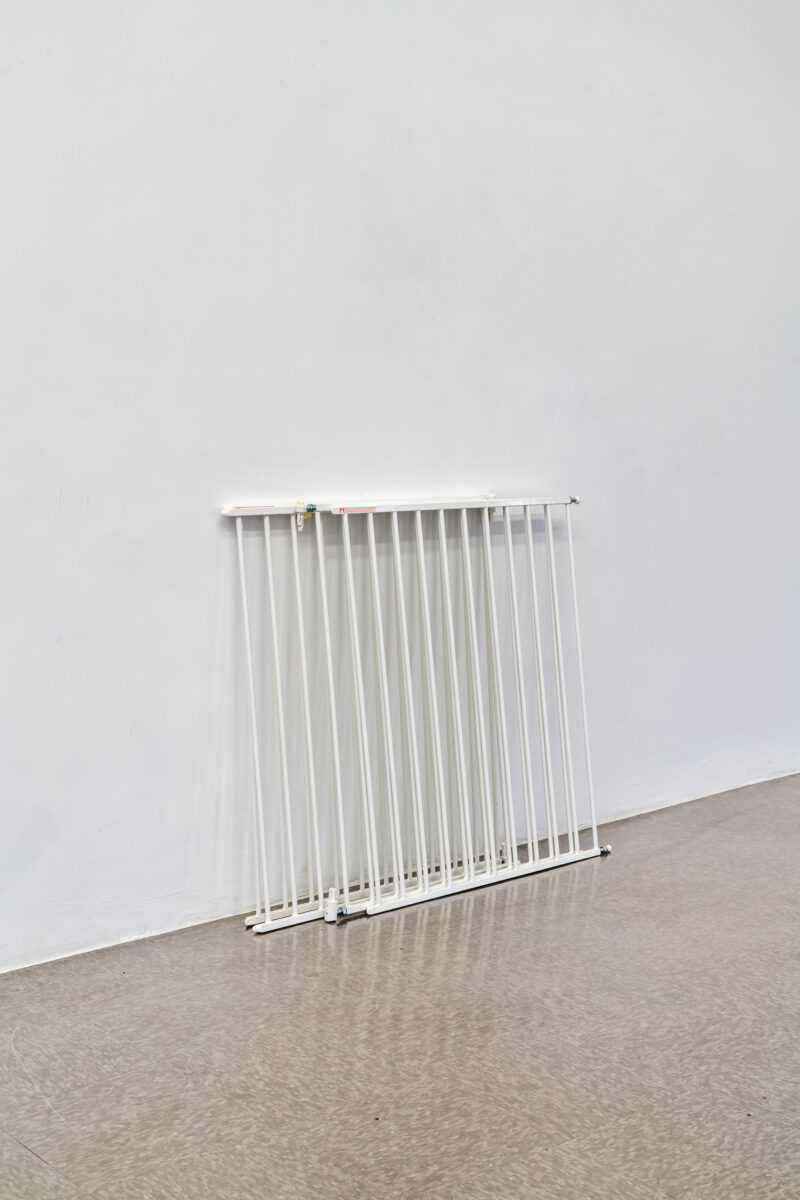
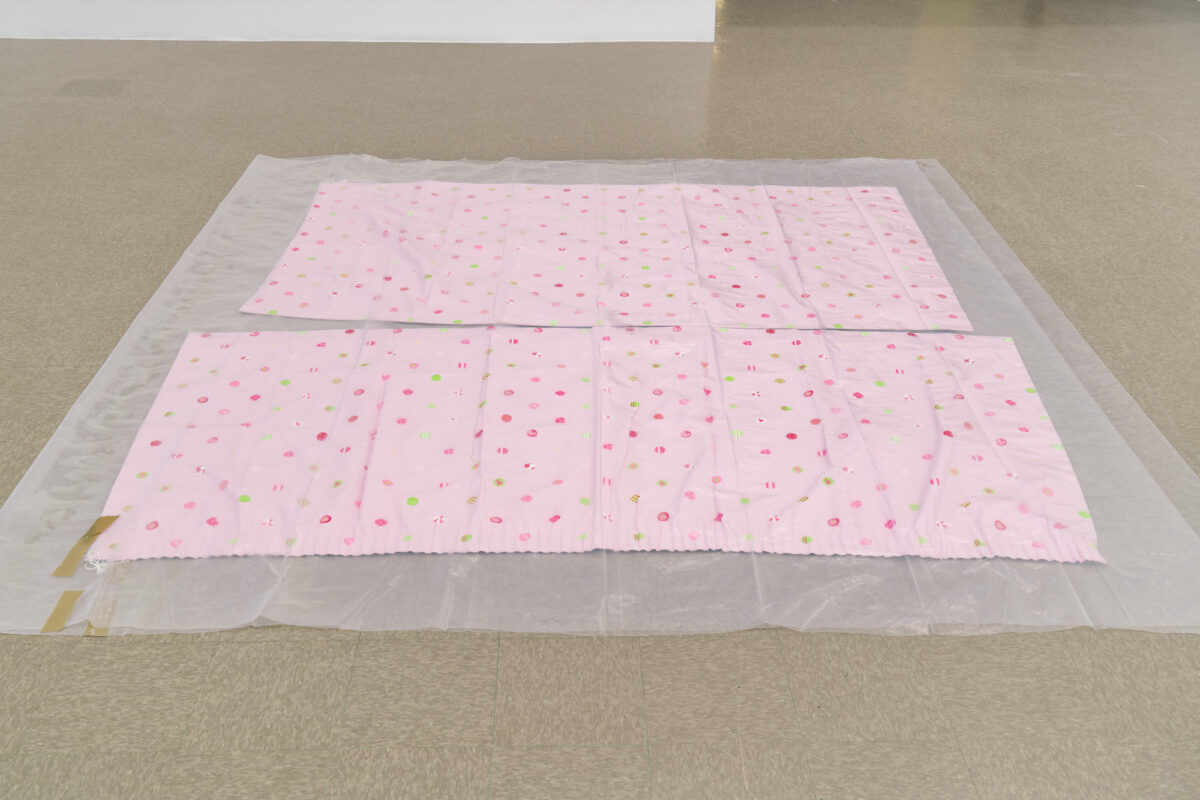
The fractal way in which Holdings is co-performed here — with the objects chosen by the Renaissance Society’s team in conversion with Leung — makes the work impossible to classify on a purely material level. The score, thereby, defies empirical systems of value that classify bodies materially, placing them in neat little boxes. Further, the collaborative nature of its plural manifestation echoes the process by which the wider exhibition becomes in the Renaissance Society’s space. The vulnerability accentuated by Leung’s scores is at the heart of this process. That is, in the conception and co-creation of this exhibition, Leung resists the individuated identity of the Artist, renegotiating given processes of labour by suspending the disincorporation of life so willed by fiscally focused systems. Made plural and porous, and all incomplete, here an (artistic) identity is acknowledged as something constitutively relational — made, un-made, and re-made through humanly relations of trust, care and dependency — made with and through practices of love.
Ghislaine Leung, Holdings – April 14th, 2024, Renaissance Society, Chicago,
